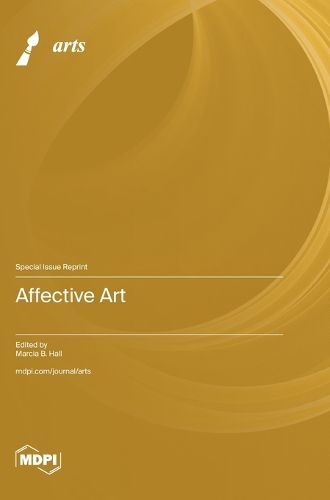Readings Newsletter
Become a Readings Member to make your shopping experience even easier.
Sign in or sign up for free!
You’re not far away from qualifying for FREE standard shipping within Australia
You’ve qualified for FREE standard shipping within Australia
The cart is loading…






This title is printed to order. This book may have been self-published. If so, we cannot guarantee the quality of the content. In the main most books will have gone through the editing process however some may not. We therefore suggest that you be aware of this before ordering this book. If in doubt check either the author or publisher’s details as we are unable to accept any returns unless they are faulty. Please contact us if you have any questions.
This Special Issue on "Affective Art" includes papers that span the history of Western art from the Byzantine period to the present, addressing the emotions that works of art and architecture can arouse, ranging from fear, shame, sexual arousal, delight, elation, disgust, empathy, and more. Literary scholars have examined sentiment, and, recently, several art historians have begun to explore those eighteenth- and nineteenth-century images intended to evoke an empathetic feeling in the viewer, akin to the period concept of "sensibility". Few artworks do not evoke at least a token emotion, but these can move us with their beauty-a sheer aesthetic response. This Special Issue, therefore, explores how art evokes its response. There are three large categories into which we can divide affective imagery: religious and devotional; sexual; and political. The largest category of works addressed here is religious. In his pioneering study of such pictures, The Power of Images (1989), David Freedberg considered the history of iconoclasm and censorship-the preventive measures that have attempted, across the centuries, to suppress affective responses to artworks. Also studied here are the unnamable emotions generated by modern abstract art and recent responses to political events, such as the removal of Confederate statues.
$9.00 standard shipping within Australia
FREE standard shipping within Australia for orders over $100.00
Express & International shipping calculated at checkout
This title is printed to order. This book may have been self-published. If so, we cannot guarantee the quality of the content. In the main most books will have gone through the editing process however some may not. We therefore suggest that you be aware of this before ordering this book. If in doubt check either the author or publisher’s details as we are unable to accept any returns unless they are faulty. Please contact us if you have any questions.
This Special Issue on "Affective Art" includes papers that span the history of Western art from the Byzantine period to the present, addressing the emotions that works of art and architecture can arouse, ranging from fear, shame, sexual arousal, delight, elation, disgust, empathy, and more. Literary scholars have examined sentiment, and, recently, several art historians have begun to explore those eighteenth- and nineteenth-century images intended to evoke an empathetic feeling in the viewer, akin to the period concept of "sensibility". Few artworks do not evoke at least a token emotion, but these can move us with their beauty-a sheer aesthetic response. This Special Issue, therefore, explores how art evokes its response. There are three large categories into which we can divide affective imagery: religious and devotional; sexual; and political. The largest category of works addressed here is religious. In his pioneering study of such pictures, The Power of Images (1989), David Freedberg considered the history of iconoclasm and censorship-the preventive measures that have attempted, across the centuries, to suppress affective responses to artworks. Also studied here are the unnamable emotions generated by modern abstract art and recent responses to political events, such as the removal of Confederate statues.